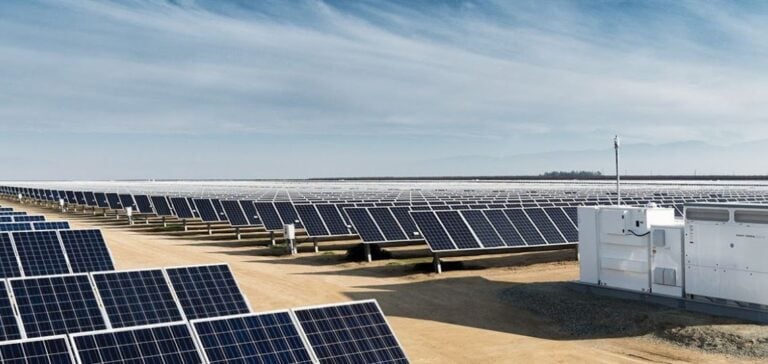Uzbekistan marks a major step forward in its quest for a sustainable future with the activation of two new solar power plants. The Samarkand and Jizzakh power plants, with their impressive combined capacity of 511MW, symbolize this transition. The project, a collaboration between Masdar and Dongfang Electric Corporation, highlights the country’s commitment to a sustainable energy future. This initiative is a direct response to the country’s energy challenges, promising to reduce blackouts while increasing the supply of clean energy.
The Key Role of TrinaTracker Innovations
At the heart of this transformation is TrinaTracker’s advanced technology, which has equipped the sites with 11,248 Vanguard 1P trackers. These innovative devices maximize the efficiency of solar capture, an essential element for increasing energy production. In addition, the Trina Smart Cloud digital platform offers enhanced management and monitoring, ensuring optimum plant performance. This step forward in energy management illustrates the fusion of technological innovation and ecological ambition.
Environmental Impact and Social Benefits
The completion of these projects will have a significant impact, supplying 240,000 homes with clean, sustainable electricity. The impact on reducing CO2 emissions is just as significant, with over a million tonnes avoided every year. These figures underline the crucial importance of the transition to renewable energy sources for Uzbekistan, as part of a global approach to combating climate change.
Operational Excellence and Close Collaboration
The success of this initiative also relies on TrinaTracker, one of the world’s leading tracker manufacturers, having faced logistical challenges and tight deadlines. Close collaboration with local and international partners, notably from Uzbekistan and Abu Dhabi, ensured the implementation of optimum technical solutions. Synergy between the various players involved in the project is a model of successful international cooperation.
TrinaTracker’s role extends beyond the borders of Uzbekistan, marking a significant step forward in the promotion of clean energy in Central Asia. The company has established itself as a pillar of the energy transition, working towards a future where innovation and sustainability go hand in hand. The impact of these projects on the region and beyond highlights the importance of collaboration and commitment to sustainable development.






















